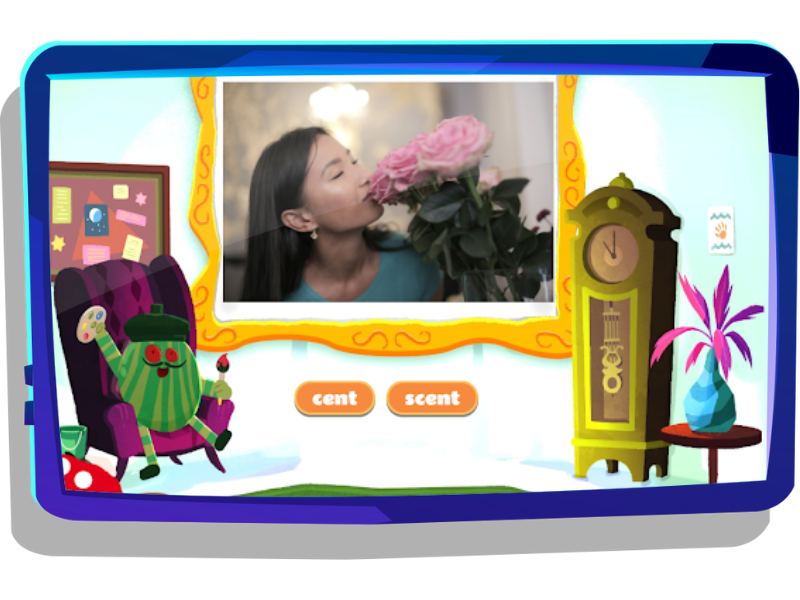Year 4 Spelling
Discover Year 4 spelling standards

Home > English > Spelling > Year 4
Children are expected to spell a wide range of words correctly once they reach Year 4. The strategies learnt from Year 1 to Year 3 should be consistently applied to support accurate spelling. In addition to these strategies, students should focus on correctly spelling commonly confused words, known as homophones. Year 4 also covers how to spell words that include silent letters, and broadening knowledge and use of prefixes and suffix
Before we dive in, download our Year 4 spelling word lists. Keep reading to learn how you can help your child improve their spelling skills!
Suffixes
Suffixes are morphemes (groups of letters that can have a meaning on their own) that can be added to the end of a root word. This can sometimes change the meaning of a root word. Knowing a wide range of suffix spellings can really help children to develop confidence when attempting to spell new words.
Here’s a spelling list of suffixes that children will use in Year 4:
- -tial (initial, potential, confidential)
- -cial (facial, social, special, beneficial)
- -cious (precious, conscious, delicious)
- -tious (ambitious, scrumptious, infectious)
Prefixes
Prefixes are similar to suffixes, but are added to the beginning of a root word. A prefix, just like a suffix, can change the meaning of the root word. There are a wealth of prefixes that Year 4 students can learn to improve their overall spelling skills.
Share the list below with your child for spelling practice:
- under- (undermine, underground, undertaking)
- over- (overjoyed, overdue, overall, overlap)
- pre- (prewash, preside, preschool)
Homophones
Homophones are words that sound the same but have different meanings or spellings.
knight

night

flower

flour

Here’s a longer spelling list of homophones:
- seam/ seem
- feet/ feat
- steal/ steel
- flea/ flee
- male/ mail
- plain/ plane
- vane/ vain
- pair/ pare/ pear
- there/ their
- to/ too/ two
- brake/ break
- flew/ flu
- stare/ stair
- loan/ lone
- weak/ week
- heal/ heel
Practice tip
Boost your child's spelling skills by using images to learn homophones. For example, in this Night Zookeeper game, children have to identify the correct spelling for the meaning of the word shown in the picture.

Silent letters words
In Year 4, children will discover more words that include silent letters. These are sometimes difficult words for children to spell as the letters aren't phonetically pronounced when the word is spoken aloud.
Here are some examples of words that include silent letters that your child will need to know:
- lamb
- thistle
- knight
- island
- anchor
- chorus
- conscious
Using a dictionary and thesaurus
Your child is expected to stretch their vocabulary by using a dictionary and thesaurus on a regular basis. They should know how to look for synonyms (similar words) and antonyms (opposites) and ensure that they spell them correctly when using them in their articles and stories. Children in Year 4 should also know how to quickly look up the spelling of new academic vocabulary, using their basic knowledge of the specific word, such as the opening two or three letters.
How Night Zookeeper can help

Night Zookeeper is a reading & writing program created to help children in Years 1 to 6 improve their literacy skills, with an emphasis on boosting grammar, punctuation, and spelling. Night Zookeeper can support you and your child through their learning journey in a variety of ways!
Our award-winning educational content has been developed by experts to make learning fantastically fun for even the most reluctant readers and writers! When it comes to teaching spelling, our diverse range of activities include:
- Word games to help consolidate your child’s knowledge of topics such as sight words and phonics
- Reading comprehension lessons to teach them about context
- Printable spelling worksheets for on-the-go learning
Sign up today to instantly boost your child’s spelling skills and get a FREE 7-day trial!
Related articles


Make Reading & Writing Fantastically Fun!
- Award-winning reading & writing program for kids
- Improves spelling, grammar, punctuation & vocabulary
- Over 1,000 different learning games and activities



